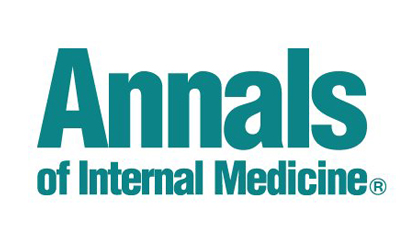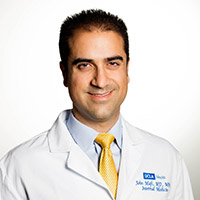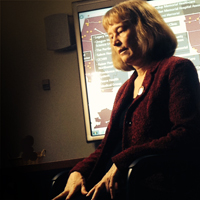
LOS ANGELES & BOSTON – The OpenNotes movement is rapidly spreading across the country, with nearly 20 million patients now invited to read online the notes their doctors write about them after a visit. Patients reading these notes report many important benefits, including feeling more in control of their care and improving adherence to their medications, but is simply reading the note enough? Inviting patients to co-produce notes with their clinicians is a logical next step for engaging patients even more actively, and researchers at UCLA and Harvard Medical School/Beth Israel Deaconess Medical Center (BIDMC) are now exploring what they call “OurNotes.”
Their first study results appear today in the Annals of Internal Medicine.

“If executed thoughtfully, OurNotes has the potential to reduce documentation demands on clinicians, while having both the patient and clinician focusing on what’s most important to the patient,” said lead author John Mafi, MD, MPH, assistant professor of medicine in the division of general internal medicine and health services research at the David Geffen School of Medicine at UCLA. “Piloting OurNotes will start at four centers in 2018.”
To prepare for the pilots, researchers conducted in-depth interviews with 29 healthcare experts. Among them were 11 primary care physicians, two specialist physicians, three nurse practitioners, four health information technology professionals, eight patient advocates and one policy expert. All were familiar with OpenNotes or were OpenNotes users.
Participants overall believed that OurNotes could promote patient engagement, improve patient-centered care and patient-provider collaboration, and possibly take some of the documentation burden off busy providers. The consensus was that the most promising approach for OurNotes is to contact patients before an upcoming visit and ask them to review previous notes, provide an interval history, and list what they hope to address at the visit.
Participants were clear that patient contributions should not increase providers’ workloads or disrupt workflow, and that participation in OurNotes should not be a requirement, but offered as an option.
 “One can argue that reading a note is far less active than actually participating in producing a note. Transforming practice with OurNotes holds great promise for more active patient involvement,” said senior author Jan Walker, RN, MBA, OpenNotes Co-founder and Assistant Professor of Medicine, Harvard Medical School. “We’ve had a warm reception from clinicians who want to give OurNotes a try. They are intrigued by the notion that an interval history and agenda provided by a patient is a way to streamline the visit and address the patient’s priorities more effectively.”
“One can argue that reading a note is far less active than actually participating in producing a note. Transforming practice with OurNotes holds great promise for more active patient involvement,” said senior author Jan Walker, RN, MBA, OpenNotes Co-founder and Assistant Professor of Medicine, Harvard Medical School. “We’ve had a warm reception from clinicians who want to give OurNotes a try. They are intrigued by the notion that an interval history and agenda provided by a patient is a way to streamline the visit and address the patient’s priorities more effectively.”
In an accompanying editorial – A New Chapter in Patient-Centered Care: Sharing the Medical Note? – Monika Safford, MD, of Weill Cornell Medicine writes, “The overall goal of this movement is to improve communication between physicians and patients, ultimately increasing patients’ engagement in care and improving the shared decision making process, and thereby increasing their proclivity to follow their physicians’ advice. The costs attributed to nonadherence are staggering, estimated at $290 billion for medication nonadherence alone.”
OurNotes will start at four sites: BIDMC, University of Washington, Dartmouth-Hitchcock Medical Center, and University of Colorado. The pilot interventions will focus on patients who may benefit the most: those managing the challenges that accompany chronic illness.
Funding for OurNotes is provided by the Commonwealth Fund of New York.
Study co-authors are Macda Gerard, Hannah Chimowitz, Melissa Anselmo, and Tom Delbanco, MD, and Jan Walker, RN, MBA, of Beth Israel Deaconess Medical Center and Harvard Medical School.
Adapted from a David Geffen School of Medicine at UCLA release.




You must be logged in to post a comment.